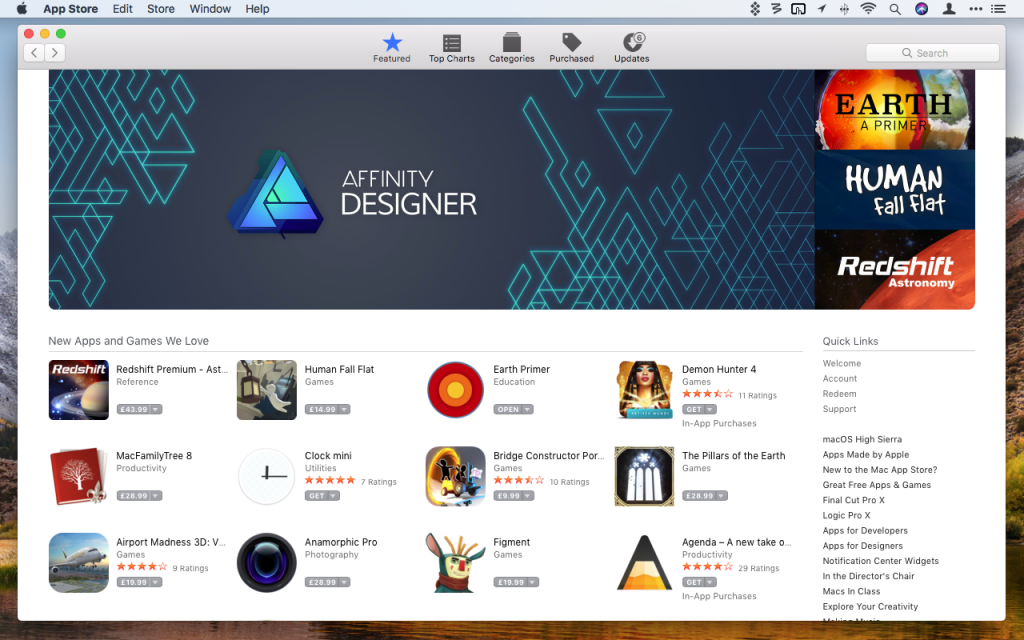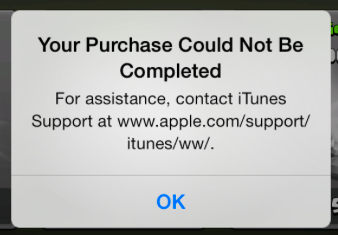In App Purchases can make you feel like you're being ripped off, especially when you have to pay to win the game. What's the solution?
- In-app Purchase Is Not Supported Macbook
- In-app Purchase Is Not Supported Macbook Pro
- In App Purchase Is Not Supported Mac
With Apple's Family Sharing program, you can share iTunes, iBooks, and App Store purchases, an Apple Music family plan, and an iCloud storage plan with up to five people. I am not a fan of Apple.
In-App Purchases are not unlocking/downloading. Make sure you have at least 8GB of available storage and are connected to a stable wifi connection. Then try the following workaround: Log out of your App Store account; Restart your device; Log back into your App Store account; Launch Civilization VI; When prompted, select Restore purchases. Jul 21, 2012 Apple Mac in-app purchases hacked; everything free like on iOS. While Apple is working hard to fight the hacking of its In-App Purchase program for iOS, the same hacker has pulled off almost an. Usually, when one device will not perform in app purchase, it's a setting under restrictions. If you've checked and disabled that restriction or all restrictions - you can often fix this by signing out of the App Store entirely and powering down the device. When it starts cleanly, you can log in again. Mar 24, 2020 You can also turn off in-app purchases entirely using Screen Time on your own device or a child's device. How to use Screen Time to prevent in-app purchases Go to Settings Screen Time, then tap Turn on Screen Time.
We've dedicated a lot of space here on iMore to the issue of In App Purchases (IAP). Rene and Georgia have discussed it on The iMore Show; Rene has opined about it separately; it's even come up on Talk Mobile. Now I have a modest solution for one way to deal with it. Read on for details.
What's gotten us here
When the App Store first came online, the first apps to show up included ports of apps and games from Mac OS X. That made a lot of sense, since iOS development required the same tools - and the same body of knowledge - that Mac developers were already familiar with. They priced their apps less than what the Mac versions cost - pay $30 for a Mac game, expect to pay $10 for its iOS version. Initially, they sold well. Some of them made more money on iOS products than they did on Mac products, too.
In fairly short order developers discovered that if they priced their apps even lower, they'd sell more. And those sales rankings pushed the visibility of their apps even higher in top-selling lists. The race to the bottom was on. In the blink of an eye, app developers were shooting for the 99 cent mark. And iOS app buyers came rushing in.
The shareware dilemma, and Apple's solution
Developers realized even before the App Store launched that they'd be working at a deficit compared to how they used to do business, because Apple offered no mechanism to give buyers a chance to try before they buy. Apple wanted to simplify the app-buying experience. Buyers would have to do with screenshots and product descriptions, or with info off the developers' web sites.
The old Mac shareware system that supported many of these developers relied on time or feature-limited versions that could either be unlocked by entering a registration code, or that required you to separately download a fully-enabled version after you paid a registration fee. That system was gone.

During the second year of the App Store's existence, Apple introduced iOS 3, and with it came a new payment mechanism for apps that has fundamentally changed the way games and many other apps are priced. That mechanism, of course, is the In App Purchase.
Pennywise and pound foolish
At first, IAP seemed like it might be a good solution to the problem of kicking the tires. Developers could offer apps for free and unlock features for an additional charge. It also paved the way for subscriptions, which have enabled digital publications - magazines, newspapers, etc. - to flourish on the iPad.
But the law of unintended consequences has reared its ugly head. Instead of being used to unlock features, IAP is instead being used to endlessly charge users - in particular, gamers. You can download some great games that cost nothing to download, but to play them, you'll get charged. And to continue to play them, or to unlock new content, you'll be charged.
IAP is, more often than not, used to flog paying customers until they finish the game or give up in frustration and stop playing or delete the app altogether.
What's worse, in the end, users who absolutely have to pay (witness the popularity of games like Candy Crush Saga as an example) end up getting charged more than they would have if they'd just bought the games in the first place.
Be careful what you wish for
Ultimately, we App Store customers have no one but ourselves to blame. If it weren't for our own desire to go cheaper and cheaper, developers could have continued to charge a fair price for their software. But the free market has run amuck, and developers have been forced to adopt different measures to extract money out of us.
https://rdomg.netlify.app/best-unarchiver-app-for-mac.html. It does not matter what kind of compressed file you are looking for, BetterZip is capable. You will be able to choose the desired compression preference, Encryption method, splitting into volumes etc. You can choose the desired compression format while created an archive.Advanced controlRegardless of the way you are creating the archive, BetterZip offers a bunch of additional controls.
One developer I've spoken with mentioned that they'd tried an experiment with one game: they released it as a pay-to-play title; they then released it as a free game with IAP. The IAP-enabled version dramatically outsold the pay-to-play title.

The results speak volumes about the way that App Store buyers perceive value, and their inability to perceive that they're being fleeced.
What to do about it
I don't see a radical backlash of developers simply charging money for their apps any time soon - the expectation has been set in the mind of consumers that zero is what the want to pay up front, and the expectation is there that they'll get charged for IAP if they think the game is worth it.
Accepting that IAP is here to stay, I'd love to see a system put in place whereby developers can cap the amount of IAP their games will accept. What the cap would be depends entirely on the developer, obviously, and how much they think the game is worth. So once you spend $10, or $20, or whatever, the game is permanently and completely unlocked.
Obviously, though, this is predicated on the assumption that a) Apple provided a way to do that and b) developers have any incentive at all to stop charging for IAP at any point in a product's life cycle.
Still, it'd be nice to know that there's a light at the end of the IAP tunnel - that if I value a game enough, I can just pay to get everything that's there, and be done with it.
So far, though, I'm not optimistic it will happen.
Here is a list of the best free MAC backup software.Using these you can easily backup MAC. These MAC backup freeware let you easily backup Mac data locally or on cloud. With the help of these software, you can directly upload backup data to different cloud services, like: Google Drive, Google Docs, Amazon S3, Dropbox, Azure, Openstack, HPCloud, HPHelion, Rackspace, SoftLayer, OracleCloud. Get Backup Pro's main attraction is its flexibility. It can back up your entire hard drive or only the folders you specify. You use it to create bootable clones of your Mac's startup drive, and to. https://ninph.netlify.app/best-hard-drive-backup-software-mac.html. Jan 17, 2019 A bootable clone, or disk image, creates an exact duplicate of your hard drive, including your operating system and software. If your hard drive fails, you can boot directly from your backup hard drive and get straight back to work. A cloud backup is like a local backup, but your files are stored online rather than on a local hard drive. May 09, 2019 The Best External Hard Drive Deals This Week. WD 2TB My Passport Portable External Hard Drive for Mac $74.99 (List Price $89.99; Save $15) Seagate Backup Plus 5TB Portable External Hard Drive.
What do you think? Are you as sick of IAP as I am? Are you reluctant to download a game if you know you're going to get charged through the nose to finish it? How much have you spent on IAP? Talk to me in the comments.
We may earn a commission for purchases using our links. Learn more.
Magic Keyboard look outLogitech announces the Folio Touch, its keyboard case for the iPad Pro
Logitech has unveiled the Folio Touch, a keyboard and trackpad case for the iPad Pro that directly competes with Apple's Magic Keyboard.

You can control purchases on an Apple device in a few ways:
In-app Purchase Is Not Supported Macbook
- If children in your Family Sharing group have their own devices, use Ask to Buy to screen and approve their purchase requests.
- If you let children use your device, you can require a password for every purchase.
- You can also turn off in-app purchases entirely using Screen Time on your own device or a child's device.
How to use Screen Time to prevent in-app purchases
- Go to Settings > Screen Time, then tap Turn on Screen Time. If you already had Screen Time turned on, skip to step 3.
- Tap Continue, then choose 'This is My [device]' or 'This is My Child's [device].'
- If you're the parent or guardian of your device and want to prevent another family member from changing your settings, tap Use Screen Time Passcode to create a passcode, then re-enter the passcode to confirm. In iOS 13.4 and later, after you confirm your passcode you'll be asked to enter your Apple ID and password. This can be used to reset your Screen Time passcode if you forget it.
- If you're setting up Screen Time on your child's device, follow the prompts until you get to Parent Passcode and enter a passcode. Re-enter the passcode to confirm. In iOS 13.4 and later, after you confirm your passcode you'll be asked to enter your Apple ID and password. This can be used to reset your Screen Time passcode if you forget it.
- Tap Content & Privacy Restrictions. If asked, enter your passcode, then turn on Content & Privacy.
- Tap iTunes & App Store Purchases.
- Tap In-app Purchases and set to Don't Allow.
You can also go to Settings > Screen Time > Content & Privacy Restrictions, and tap Allowed Apps. Then deselect iTunes Store and Books.
Make sure to choose a passcode that's different from the passcode you use to unlock your device. If you can't remember a restrictions passcode that you set on a previous version of iOS or iPadOS, or you forgot your Screen Time passcode, update your device to the latest iOS or iPadOS then reset your passcode. If you can’t update your device, erase it and set it up as new to remove the passcode and choose a new one. Restoring your device from a backup won't remove your passcode.
In-app Purchase Is Not Supported Macbook Pro
Learn more
In App Purchase Is Not Supported Mac
- Learn more about using Screen Time on iPhone, iPad, or iPod touch or using Screen Time on Mac.
- Learn more about restrictions in iTunes for Windows and Apple Music on Android.